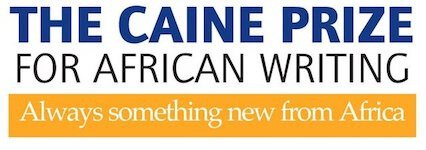The Caine Prize for African Writing has been made aware of an allegation levelled against this year’s shortlisted story ‘All Our Lives’ by Tochukwu Okafor. The Trustees of the Caine Prize referred this matter to the 2019 Judges for adjudication, and on comparison of ‘All Our Lives’ and Laleh Khadivi’s ‘Wanderlust’, published in 2014, determined that there had been a failure to attribute an original source.
Ellah Wakatama Allfrey, Chair of the Prize, has corresponded with both authors and as a result of these communications, the Prize regrets to announce the removal of Tochukwu Okafor’s story from the 2019 shortlist.
The Caine Prize is committed to holding writers to the very highest of ethical standards. It is accepted that in this particular case, the author’s failure to attribute a core source was born of inexperience and lack of familiarity with literary protocols.
The Prize will review our guidelines for 2020 submissions, and instil preventative measures to guard against such incidents. We hope that this process doesn’t detract from this year’s truly excellent winning story.
ENDS
Notes to Editors
The Caine Prize, awarded annually for African creative writing, is named after the late Sir Michael Caine, former Chairman of Booker plc and Chairman of the Booker Prize management committee for nearly 25 years.
The Prize is awarded for a short story by an African writer published in English (indicative length 3,000 to 10,000 words). An African writer is taken to mean someone who was born in Africa, or who is a national of an African country, or who has a parent who is African by birth or nationality.
The African winners of the Nobel Prize for Literature, Wole Soyinka and J M Coetzee, are Patrons of The Caine Prize. Baroness Nicholson of Winterbourne is President of the Council, Ben Okri OBE is Vice President, Ellah Wakatama Allfrey OBE is the Chair, and Adam Freudenheim is the Deputy Chairperson.
Previous winners are Sudan’s Leila Aboulela (2000), Nigerian Helon Habila (2001), Kenyan Binyavanga Wainaina (2002), Kenyan Yvonne Owuor (2003), Zimbabwean Brian Chikwava (2004), Nigerian Segun Afolabi (2005), South African Mary Watson (2006), Ugandan Monica Arac de Nyeko (2007), South African Henrietta Rose-Innes (2008), Nigerian EC Osondu (2009), Sierra Leonean Olufemi Terry (2010), Zimbabwean NoViolet Bulawayo (2011), Nigerian Rotimi Babatunde (2012), Nigerian Tope Folarin (2013), Kenyan Okwiri Oduor (2014), Zambian Namwali Serpell (2015), South African Lidudumalingani (2016), Sudanese Bushra al-Fadil (2017), Kenyan Makena Onjerika (2018); and Nigerian Lesley Nneka Arimah (2019).
The five shortlisted stories are published annually by New Internationalist (UK), Interlink Publishing (USA), Jacana Media (South Africa), Lantern Books (Nigeria), Kwani? (Kenya), Sub-Saharan Publishers (Ghana), FEMRITE (Uganda), ‘amaBooks (Zimbabwe), Mkuki na Nyota (Tanzania), Redsea Cultural Foundation (Somaliland, Somalia, Djibouti, Ethiopia, Eritrea, Sudan, South Sudan and UAE), Gadsden Publishers (Zambia) and Huza Press (Rwanda). Books are available from the publishers or from the Africa Book Centre, African Books Collective or Amazon.
The Caine Prize is principally supported by The Oppenheimer Memorial Trust, The Miles Morland Foundation, The Carnegie Corporation, the Booker Prize Foundation, The Sigrid Rausing Trust, the Royal Over-Seas League and John and Judy Niepold. Other funders and partners include, The British Council, Georgetown University (USA), The Lannan Center for Poetics and Social Practice, The van Agtmael Family Charitable Fund, Rupert and Clare McCammon, Adam and Victoria Freudenheim, Arindam Bhattacherjee, Phillip Ihenacho and other generous donors.
For more information
James Killin
james@raittorr.co.uk
020 7922 7719
Follow us on Twitter (@CainePrize), Facebook, Instagram, and visit our website: www.caineprize.com
